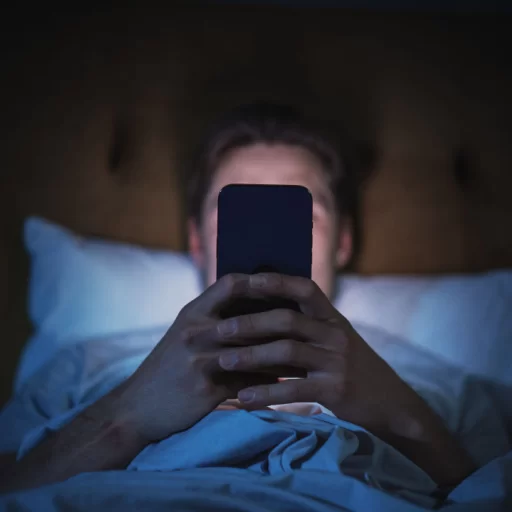Our smartphones bring with them the information. This is useful, but excessive use can lead to addiction and disrupt life.
These assumptions about being an addicted smartphone: reaching for it when you’re bored or stressed, checking apps all the time, not doing work or other relationships because you have your phone.
Set healthy boundaries
Boundaries are one of the best strategies for breaking the phone habit. Set and enforce a simple set of rules for when and where people can and cannot use their cell phones, and people regain access to their time and attention.
People with porous boundaries might find it harder to form and maintain satisfying relationships with technology, and may fall victim to phone addiction. Having professional help like counselling or therapy can give them the support and direction they require to have more balanced, healthier interactions with technology.
Too much cell phone use is associated with many health and wellbeing consequences such as eye strain, neck stiffness, weight gain, failure to concentrate in class or at work, lack of sleep, memory loss, and risk of depression and anxiety. A healthy phone usage limit, non-screen activity like connecting with family and friends offline and avoiding obsessive checking are all ways to encourage wellbeing. And eliminating FOMO by inhibiting compulsive checking can also alleviate stress, and give life a sense of meaning and satisfaction.
Keep a track of how much time you spend on your phone.
: Keep track of the time you use your smartphone and the frequency with which you use it so you can pinpoint problems in those areas. You can do this by using usage-logging apps or just by writing down when and why you check it over the day and even if you feel any physical strain such as neck or eye pain because you spend so much time on the phone.
Cognitive behavioral therapy (CBT) is the answer to help you overcome smartphone addiction. Your CBT therapist will show you how to change your mind and your actions, learning mindfulness and reversing any faulty habits that make you a problem with the phone.
Parents can do a key job of breaking the addiction to smartphones by having boundaries that are set and adhered to, establishing healthy family habits such as family games nights or walks outside, and engaging their children in healthier relationship with tech through example and a desire to explore alternative interests or meet others face-to-face.
Keep your phone out of your pocket.
Make sure your phone is far from you to minimize temptation, by hiding it in a drawer or behind your desk when doing tasks that demand full attention.
Turn off notifications and apps that are interrupting you if you can. If your phone is still pulling you in, switch it out for healthier distractions like reading a book or walking instead of looking at the screen.
You have a couple of options if you think you or someone you care about is addicted to the mobile phone. A therapist can detect and fix all the issues and teach how to manage digital habits; online resources and apps provide self-help; change is possible! So, do it now – your body, mind and soul need no less.
Switch phone use for better activity!
Smartphone addiction can be difficult to quit, but you can get the habit under control. Restrict phone calls at certain times of day, or make it invisible during work and family time. Furthermore, replace obsessively scanning notifications with more healthful behaviors such as reading a book or going for a walk.
Smartphone usage can disrupt work and school because smartphones keep the user away from tasks and focuses during class time. This might lead to lower performance which affects promotions or stress in both places.
At worst, prolonged phone use could lead to physical-based illness such as brain grey matter degeneration and impaired GABA; at best it might disrupt personal relationships and interpersonal communication. If someone in your life seems to be overusing his smartphone, make sure to ask for professional help – a therapist can reduce time spent on smartphones and help develop healthy, balanced routines.
How to Overcome Mobile Addiction

